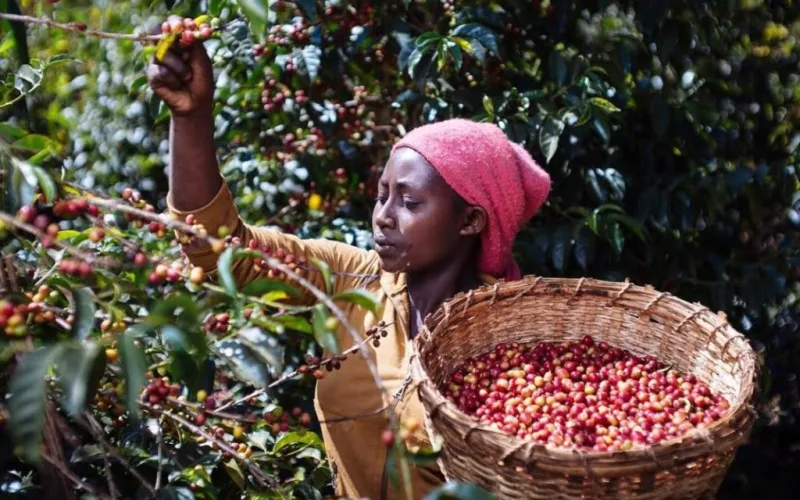Ethiopia has announced record-breaking earnings from its coffee exports this fiscal year, with revenues exceeding $1.4 billion.
The Ethiopian Coffee and Tea Authority reported that the country earned more than $1.43 billion from coffee exports during the 2023/24 financial year.
According to the Director General of the Authority, Adugna Debela, Ethiopia achieved significant results both in terms of volume and income.
The country exported 298,500 tons of coffee, marking a substantial increase compared to previous years. This year’s performance shows a 20% increase in volume and a 7.5% rise in price levels.
Last year, Ethiopia exported 240,000 tons of coffee, earning $1.3 billion. In the 2021/22 fiscal year, the country earned $1.34 billion from exporting 302,000 tons of coffee.
Brazil, the world’s leading coffee supplier, experienced a reduction in its coffee supply last year due to frost and drought.
This situation allowed Ethiopia to increase its market share. Currently, Ethiopia is selling Grade 5 coffee on the global market for $3.46 (or 190 birr) per kilogram.
However, domestically, one kilogram of coffee sells for 400 birr (or less than $7), indicating higher profitability for exporters who sell locally.
Insecurity within the country has posed challenges for coffee exporters, prompting officials to urge the government to address these issues.
Furthermore, recent European Union legislation aimed at preventing the entry and sale of environmentally harmful products has raised concerns.
This law, designed to combat global warming and deforestation, could impact Ethiopia, a significant exporter of forest coffee to Europe and other markets.
The Ethiopian Coffee Association has expressed concern about the potential economic impact of the EU’s new regulations.
The Association’s president, Dr. Hussein Ambo, emphasized the vital connection between Ethiopian coffee and its forest habitat, stating, “Ethiopian coffee is found in the forest; coffee does not taste good without the forest.”
He highlighted Ethiopia’s strict forest protection laws, which impose penalties of up to 15 years in prison for deforestation.
Dr. Ambo argued against accusations of deforestation, asserting that coffee farming in Ethiopia supports forest preservation efforts.
He called for the EU to impose a carbon fee on Ethiopia instead of accusing the country of deforestation, urging European authorities to consider the unique circumstances of Ethiopian coffee production.
Failure to address these concerns could jeopardize the livelihoods of millions of Ethiopians and lead to the abandonment of coffee plantations, exacerbating poverty and driving up global coffee prices.
Ethiopia relies heavily on coffee exports, with 30% of its shipments destined for Europe, particularly Germany and Sweden.
While other regions, such as North America and Asia, also import Ethiopian coffee, these markets are less stable and reliable.
The Ethiopian Coffee Association is working with government and business entities to lobby the European Union for understanding and flexibility regarding Ethiopia’s circumstances.
Additionally, plans are underway to implement a forestry package program aimed at benefiting coffee farmers and promoting sustainable practices.
